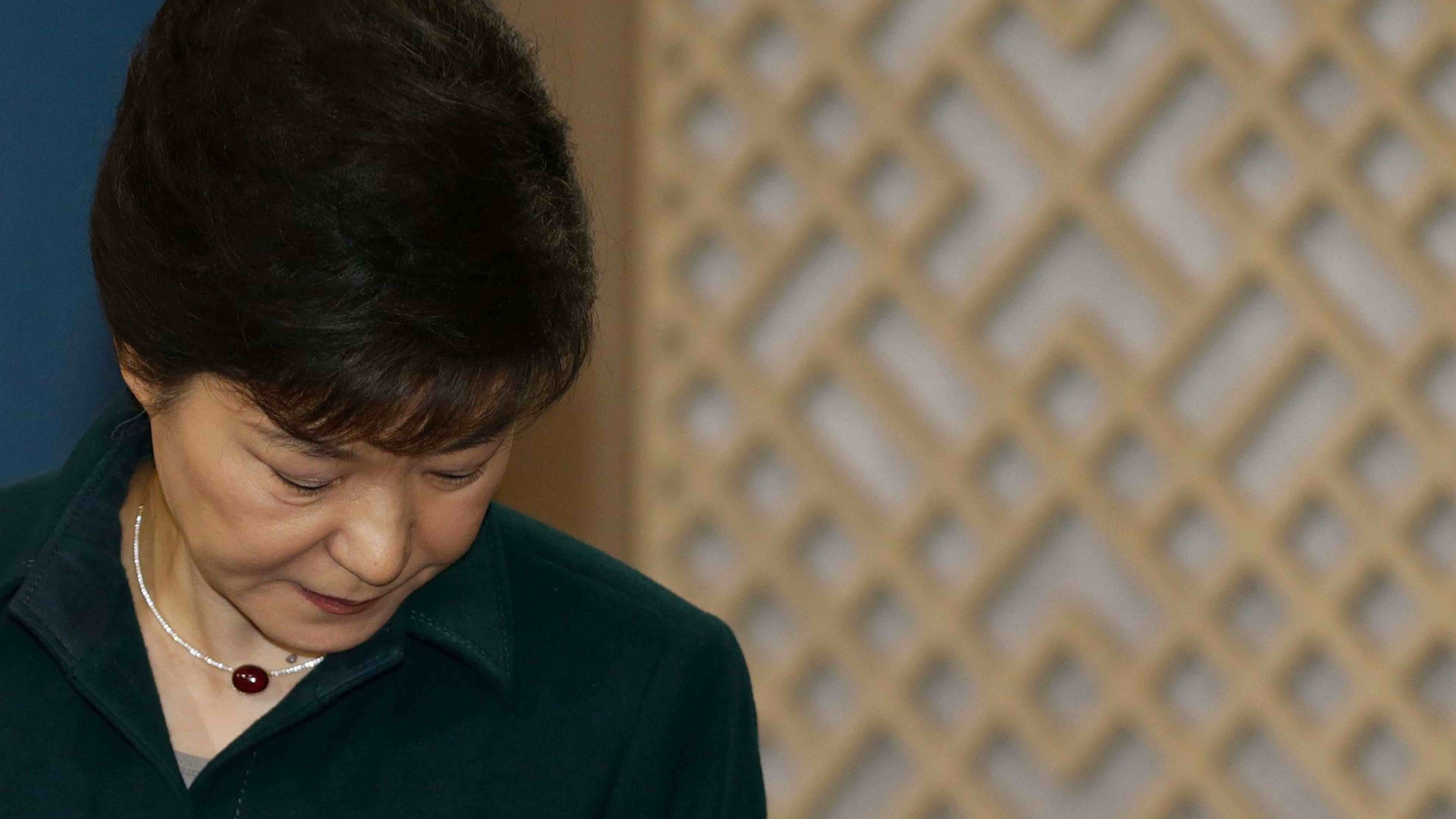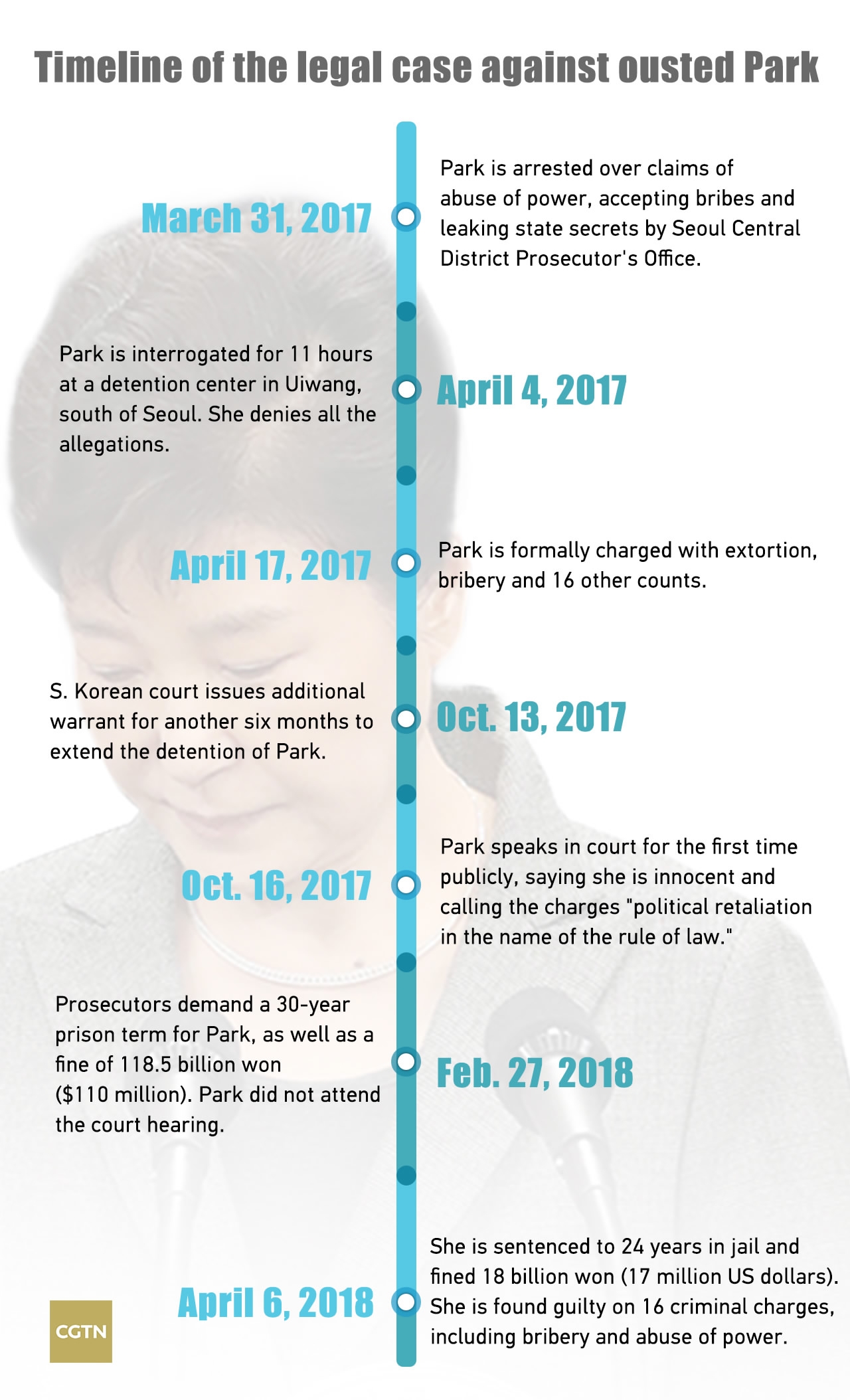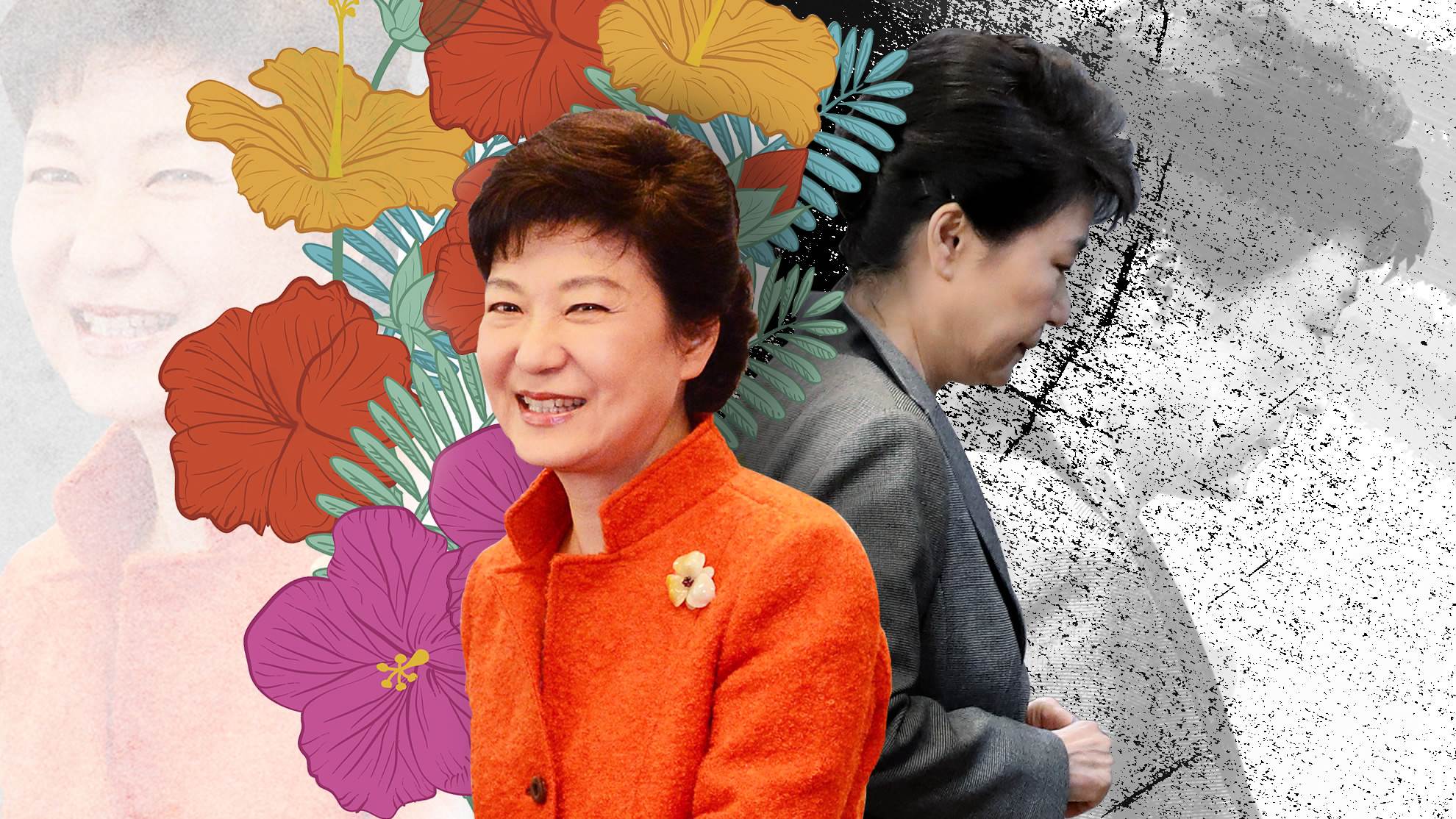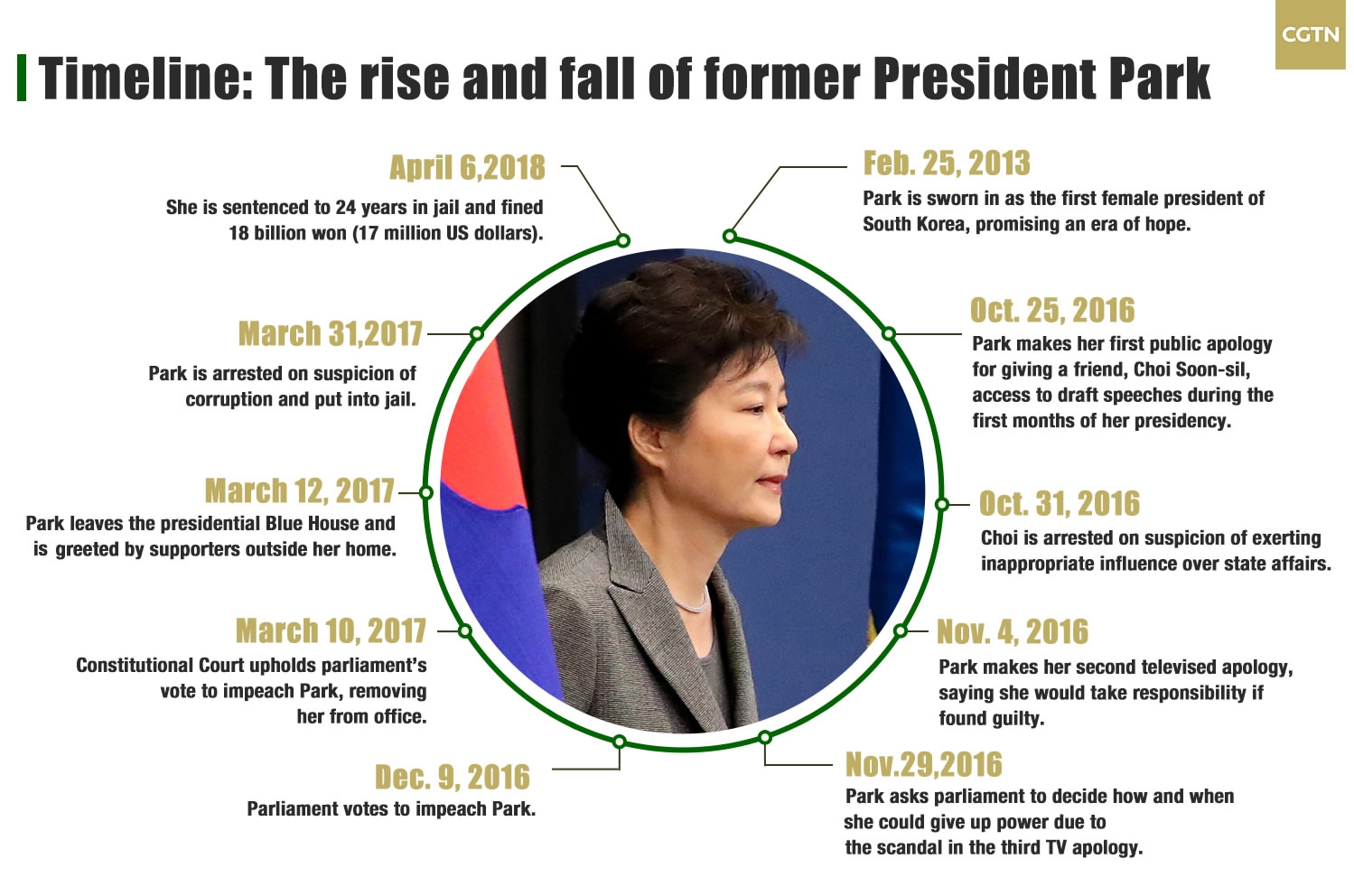A Seoul court sentenced former S. Korean president Park Geun-hye to 24 years in jail and fined her 18 billion won (17 million US dollars) on corruption charges on Friday.
The verdict was delivered by the Seoul Central District Court in a hearing that was broadcast live.
Prosecutors had demanded a 30-year prison term and a fine of 118.5 billion won (111.6 million US dollars).
What Park did wrong
The former president was convicted of 16 corruption counts that include bribery, abuse of power and coercion, according to the court.

This screen grab taken from broadcast video from the Seoul District Court on April 6, 2018, shows judge Kim Se-yoon in Seoul reading the verdict in the trial of disgraced former President Park Geun-hye. /VCG Photo
This screen grab taken from broadcast video from the Seoul District Court on April 6, 2018, shows judge Kim Se-yoon in Seoul reading the verdict in the trial of disgraced former President Park Geun-hye. /VCG Photo
"The bribes the accused received or demanded in collaboration with Choi amounts to more than 23 billion won (21.7 million US dollars)," Judge Kim Se-Yoon said, referring to Park's secret confidante and long-time friend Choi Soon-sil.
From 2013 to 2016, a key aide to Park handed Choi secret documents on upcoming senior nominations, cabinet meetings and overseas state visits and diplomatic meetings under "Park's orders or negligence."
Park for years not only concealed the presence of Choi but cracked down on journalists or lawmakers who tried to make public Choi's presence and influence, rendering the system of checks and balances ineffective.
Park had also been charged with coercing 18 large firms to "donate" a total of 77.4 billion won (72.5 million US dollars) to two dubious foundations controlled by Choi.
In addition, the disgraced former leader was blamed for seven hours of public silence over the Sewol ferry sinking disaster in 2014, killing more than 300 people, many of them young students.
This year, S.Korean prosecutors added fresh charges, including violating election laws, to the indictment against Park.
The rise and fall of Park
She has long been connected to the country's political life, having moved into the presidential Blue House in 1963 at the age of 11 after her father Park Chung-hee became president. She left there in 1979 after her father was assassinated by his spy chief.
Then in 1998, after years of seclusion, Park returned to politics and became a member of parliament. Her most glorious moment came in 2012 when she became the country's first female president in a landslide victory over liberal opponent Moon Jae-in.
Her fall from grace began in 2016 when news outlets reported suspicions that Park had been conspiring with Choi. The allegations eventually led to Park's impeachment in March 2017.
What happened to Choi?
Choi was sentenced to 20 years in prison on various charges including corruption in February.
The court said there was sufficient evidence showing Choi used her connections to coerce and receive bribes from major corporations like Samsung. Specifically, money sent to non-profit organizations set up as sports foundations was obligated as opposed to being voluntary.
The fact that Choi was the head representative of these foundations was deemed as evidence that she was an accomplice of Park.
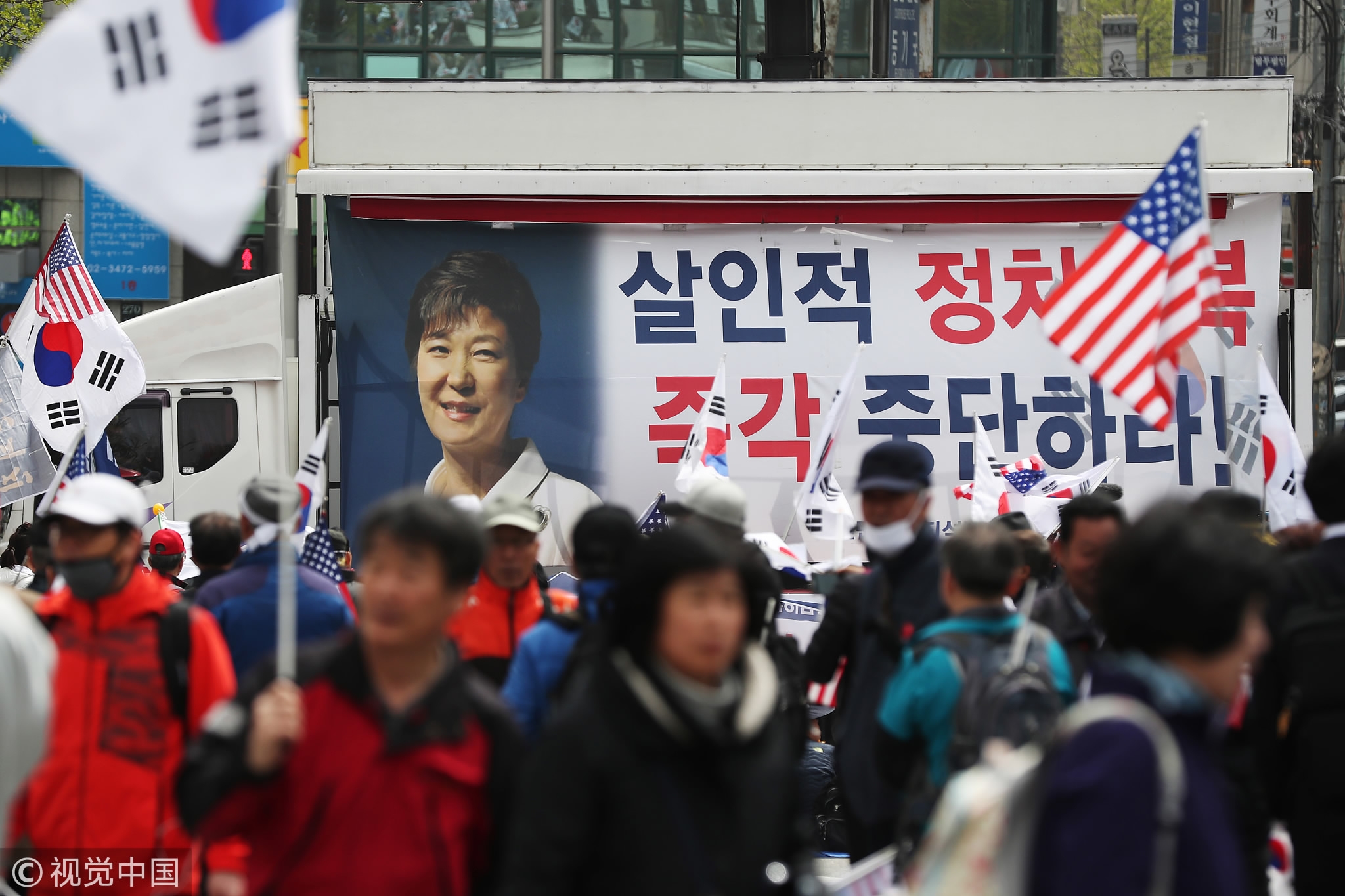
Supporters of former S. Korean President Park Geun-hye wave flags in front of a banner featuring an image of Park during a protest outside the Seoul Central District Court in Seoul, South Korea, on Friday, April 6, 2018. /VCG Photo
Supporters of former S. Korean President Park Geun-hye wave flags in front of a banner featuring an image of Park during a protest outside the Seoul Central District Court in Seoul, South Korea, on Friday, April 6, 2018. /VCG Photo
Prosecutors said Choi took one billion won from the Samsung Group to purchase a champion horse for her 21-year-old daughter, Chung Yoo-ra, to further her equestrian career. The mother was also accused of obstruction of duty to get her daughter admitted to Ewha Woman's University and receive good grades.
Choi is the daughter of Choi Tae-min, a religious figure who became Park's mentor after Park's mother was killed by an assassin’s bullet intended for her father in 1974.
Who else was involved in the scandal?
Powerful business figures were also implicated in the influence-peddling scandal.
Lee Jae-yong, the de facto head of Samsung, was convicted in August last year of paying millions of dollars in bribes to Choi in order to win favor for a merger between Samsung affiliates. Lee denied all wrongdoing and was sentenced to five years in prison. However, he was released after winning his appeal on February 5 and has since resumed his duties at Samsung.
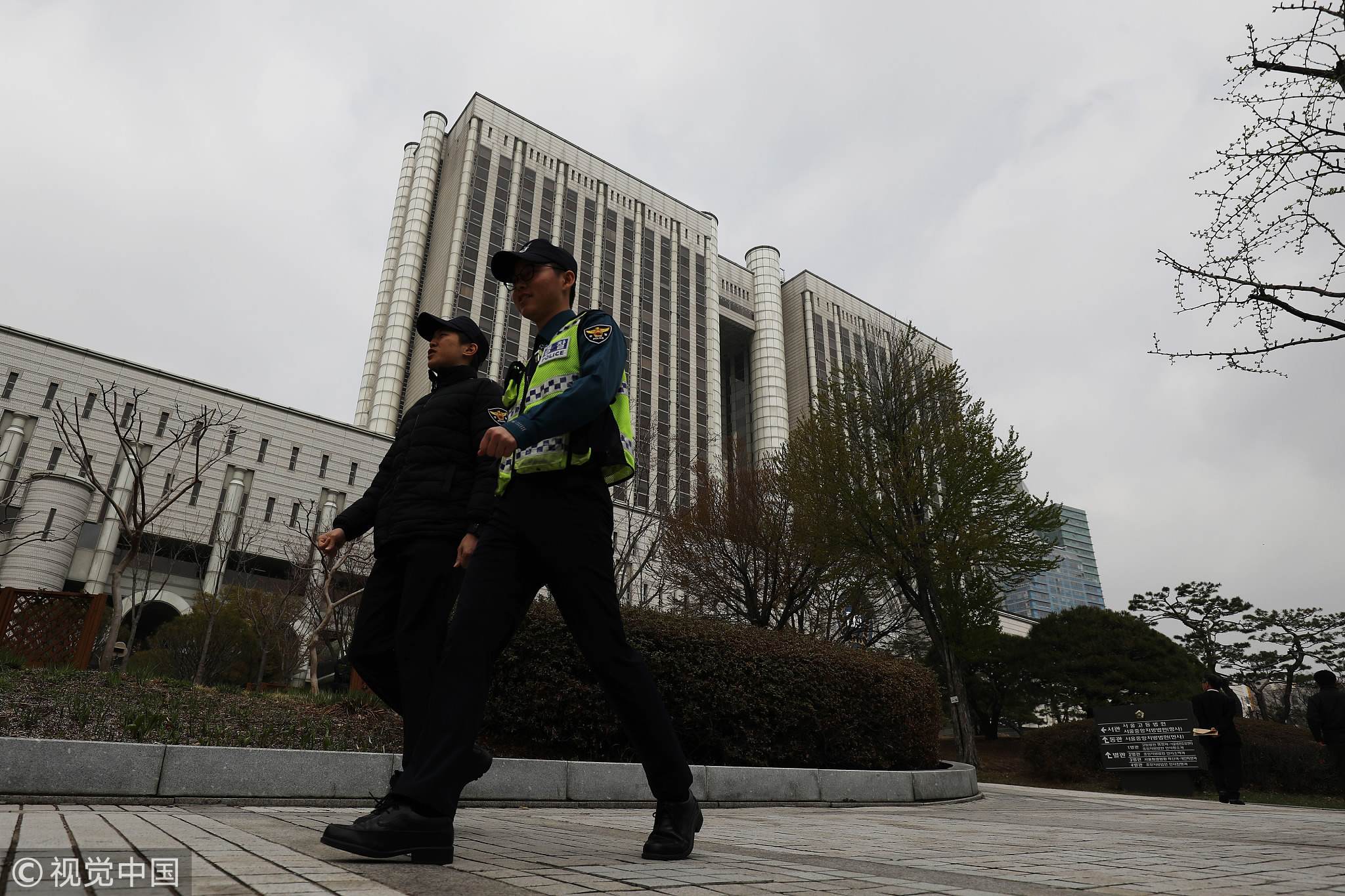
Police officers walk past the Seoul Central District Court on Friday, April 6, 2018. /VCG Photo
Police officers walk past the Seoul Central District Court on Friday, April 6, 2018. /VCG Photo
Lotte chairman Shin Dong-bin, on the other hand, was jailed on February 13 when the court sentenced him to two and a half years for bribery. Shin was accused of paying 6.5 million US dollars to Park to win favors such as a license to open a duty-free shop.
What will happen next?
The trial's conclusion is very likely to draw large protests from Park's supporters. Many elderly S. Koreans remain loyal to Park not only for her conservative policies including a hawkish stance toward the Democratic People's Republic of Korea (DPRK) but also for their admiration for her father, who helped lift the country out of post-war poverty. Groups such as “People Who Love Park Geun-hye” have staged sustained protests since her arrest.
Samsung de facto leader Lee Jae-yong has been released from prison and two convicted presidents Chun Doo-hwan and Roh Tae-woo were also pardoned in 1997. It remains to be seen whether Park can walk out of prison and her best hope appear to lie in a presidential pardon.
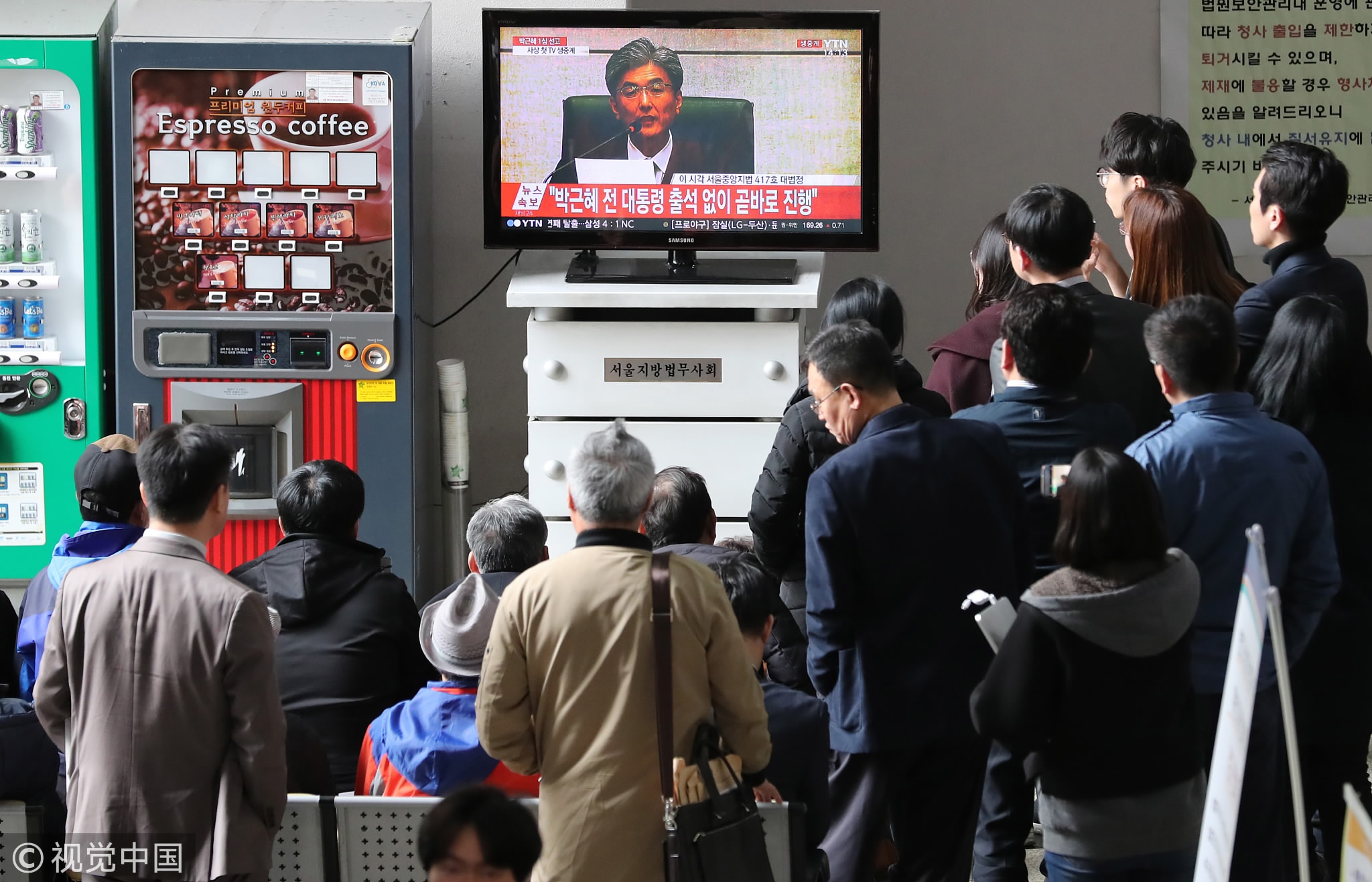
The verdict on S. Korea's ex-president is televised live on April 6, 2018. /VCG Photo
The verdict on S. Korea's ex-president is televised live on April 6, 2018. /VCG Photo
However, analysts say an imminent pardon is unlikely as Park's successor Moon came to power largely because of the public backlash against Park and her party.
Now that Park was convicted, she still has the right to appeal to the Seoul High Court.

